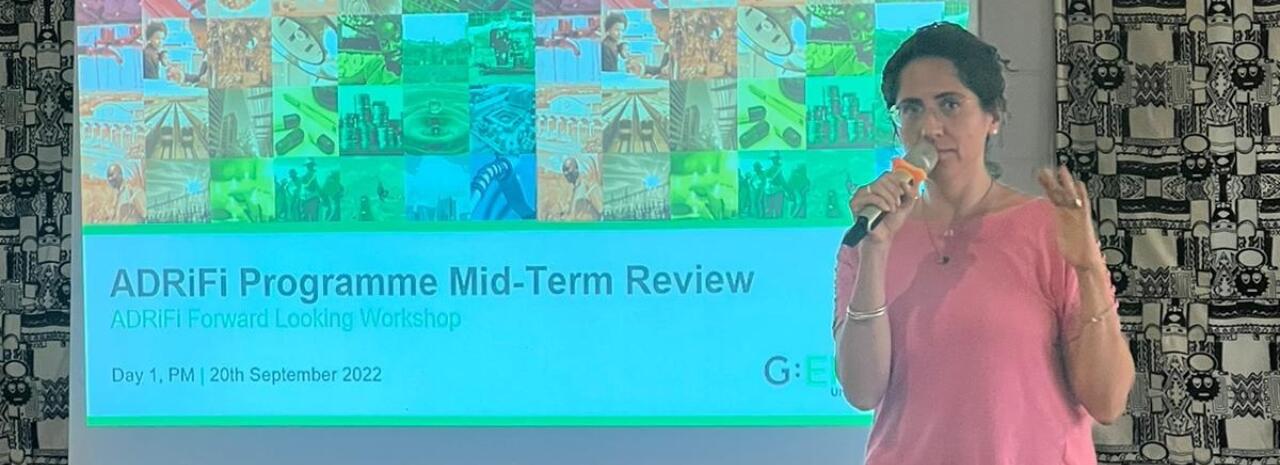
Reviewing progress on climate disaster risk financing in Africa
Genesis was contracted by the African Development Bank (AfDB) to conduct a Mid-Term Review (MTR) of the five-year (2019-2023) Africa Disaster Risk Financing (ADRiFi) programme.
The programme works to strengthen the resilience and response to climate shocks across the development bank’s Regional Member Countries (RMCs). Five countries were used as representative case studies: Gambia, Madagascar, Mauritania, Niger and Zimbabwe. The MTR evaluated the programme’s outcomes, effectiveness and efficiency, and made recommendations for improvement.
The ADRiFi programme builds countries’ capacity to evaluate and plan for climate-related risks and costs. Through ADRiFi, the AfDB also promotes initial financing for disaster risk transfer solutions by subsidising premium payments for sovereign risk insurance purchased through Africa Risk Capacity.
The different activities under ADRiFi are aimed at enhancing resilience and response to climate shocks in African countries by improving the management of climate disaster risk and promoting disaster risk coverage through parametric insurance. This ensures the availability of emergency funds for prompt assistance to vulnerable communities in the event of a disaster.
The aim of the MTR was to evaluate the implementation of the programme’s outcomes as well as the overall project effectiveness and efficiency. In addition, the MTR was an opportunity to support ADRiFi to increase its ambition and expand the scope of its solutions, as well as maximise the chances of delivering transformational change as the bank considered a second phase of support.
Genesis followed a theory-based approach combined with key stakeholder interviews and made recommendations to enhance the implementation of the ADRiFi programme. Using the criteria of the Organisation for Economic Co-operation and Development’s Development Assistance Committee, Genesis presented the final results. These highlighted the findings in relation to ADRiFi’s structure and implementation, and its trajectory based on its performance from 2019 to 2023. Some of the key findings were that:
- ADRiFi was well-designed to address a large need among RMCs as regards better management of disasters and addressing the low uptake of sovereign insurance. The programme was largely meeting its mandate.
- While project management units seemed to have sufficient capacity to run in-country activities, the central ADRiFi team was constrained and this has potentially affected their ability to make linkages between ADRiFi and other AfDB programmes. This represents a missed opportunity to use the synergies between ADRiFi and other AfDB programmes to better influence the disaster risk management policy context in RMCs.
The report also presented recommendations that addressed the structure of the project, and the relation and organisation from the AfDB. Some of the key recommendations addressed how the programme could improve its coordination and collaboration, add new services, increase its sustainability and increase efficiency and effectiveness.
The Genesis team was invited to present the findings of the MTR at a workshop held at the AfDB, with the objective to map a way forward for the ADRiFi programme. The workshop, titled the “ADRiFi Forward Looking Workshop”, took place on 20 September 2022. The stakeholders validated, through the discussion section, the proposed recommendations and provided individual feedback while showing a high interest in the project and work developed.C